I don't have an instinct for coolness. In the New York City dating scene, that's a problem. My friends have warned me that I'm prone to Persian fits of emotion (I'm Iranian) and that my eyes give everything away. So, during my two years here, I've tried to be mysterious and aloof. Against my instincts, I've left texts unanswered and told boyfriends it was no big deal when they canceled dinner. With one boyfriend, I bottled up every irritation until we barely talked anymore; when we did hang out, I itched to even the score. I staged dramas with another, fleeing his apartment when he was in the shower, or making a show of rejecting him for being too young. He loved this game, but the first time I tried to share something real about myself, he drew back. One way or another, every romance ended when I tired of faking it and unloaded in spectacular Iranian fashion.
"Why can't you just be easy breezy?" a close friend said after my first New York breakup. "Guys can't handle that much realness! Stategery, Dina, strategery!"
"But I don't want to do strategery," I said. "I want to do me."
"At least let them peel the onion slowly," she said. "Show the crazy later."
"It's not 'the crazy,'" I said. "We're talking about my thoughts and emotions here! We applaud men for showing a modicum of this, calling them 'self-aware' and 'brave.'"
For a year and a half, this conversation happened after every one of my very theatrical romances. Then, for two months this fall, I found myself in a remote artist colony in New Hampshire. Suddenly, everything I said to New York men seemed risk-free, since they were too far away to date. I decided to try an experiment. In every text, e-mail, and Tinder message, I would say the absolute most honest, vulnerable thing—the first thing that came to mind, ignoring pride, strategy, or any of the filters I had reluctantly adopted from my friends. I would show the real me in every word. I wouldn't hover around my feelings and hope these men would read my mind. If I felt hurt or excited or afraid, I would say—not hint—that I felt hurt or excited or afraid.
I started on Tinder, with a man wearing a cowboy hat. Instead of saying, "I like that hat" (Easy-breezy!), I said, "You're cute, but the hat makes me think you might be balding. Are you balding?" When another guy canceled a phone call, instead of saying, "That's okay, talk soon!" (Be positive!), I said, "That hurts my feelings." When a former lover added one of my friends on Facebook, instead of "Hey, how do you know A—?" (Be unaffected!), I wrote, "You added A—. That fills me with inexplicable rage." No one disappeared because of my honesty.
Stay In The Know
Marie Claire email subscribers get intel on fashion and beauty trends, hot-off-the-press celebrity news, and more. Sign up here.
I began texting my unfiltered musings to the men who lived inside my phone, longing for raw responses. I told an ex-lover that I thought he'd broken up with me because I was divorced. I confessed to another that I hadn't worn makeup the last time we went to dinner, just so he'd know that I was over him. Sometimes I had to force myself to own up to insecurities and manipulative motivations. But many men fell in step, missing no beats. They were more engaged. They replied faster. They said more and seemed to care—a lot. When I told one man that I mistrusted him, he said, "I'm so sorry. Tell me why." When I told another that I had loved him once, he said, "I'm honored and I felt the same."
I dialed it up a notch. I had developed intense feelings for a man at the colony and told him everything, holding back no warmth. I said, "Your writing makes me shiver." I said, "I think you'll be famous one day." I said, "I can't watch you play pool; it turns my brain to soup." When we parted, inevitably, to return to our separate lives, he said, "No one's made me feel this good about myself."
Back in New York, I picked up my heart and reconnected with my life. I found out that my favorite pre-retreat plaything had a girlfriend now, a relationship that cemented just after I confessed my feelings for the colony guy (oh, irony!). I told him that I had hoped we'd hook up again—I didn't say "hang out"—but I'd gladly be his friend, and he grew into a dear confidant. Did I sacrifice my pride in this exchange? Of course, but pride is nothing. It keeps life at bay.
I learned that there is a limit to honesty, but it isn't about guarding against rejection. It's about being aware of others and their emotions, not just your own. Will the anger or love or hurt that you've shared fall on hospitable ground, or will it scorch the soil? Still, sometimes I was humiliated or rejected. Sometimes I gave offense. Sometimes I gave ammunition to ill wishers. It hurts to put your naked self out there to be judged, to be turned away. After a while, getting the reaction I desired didn't matter. It felt good just to say what I wanted—pure, like shedding an extra skin. It weeded out those who were wrong for me, and did so with merciful speed.
Then one day last winter, the man from the artist colony resurfaced. We met for drinks, and I told him that I thought about him every day. He said, "You were always so honest. Do you ever think to protect yourself?" He's the one I wanted all along, and what he remembered most about me was my candor. Maybe that's what eventually brought him back to me. We've been together ever since.
Still, I don't know what will happen next. I just know that I've found a powerful tool. Often now, when some inner voice warns me of all the petty consequences of my honesty, I remind myself that everything I feel and want has been felt and wanted before, by so many people. None of it is new, and so none of it is such a risk.
This article appears in the July issue of Marie Claire, on newsstands now.
-
 Orlando Bloom and Elijah Wood Enjoy 'Lord of the Rings' Reunion With "Hobbit" Co-Stars
Orlando Bloom and Elijah Wood Enjoy 'Lord of the Rings' Reunion With "Hobbit" Co-Stars"3 hobbits and an elf."
By Danielle Campoamor Published
-
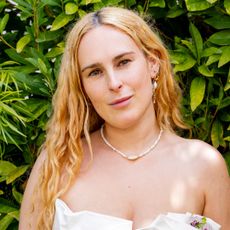 Rumer Willis Says She Feels “Sexier Than Ever” as Mother’s Day Approaches
Rumer Willis Says She Feels “Sexier Than Ever” as Mother’s Day Approaches“Feeling unstoppable.”
By Danielle Campoamor Published
-
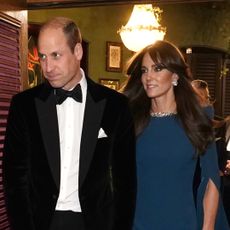 Prince William and Kate Middleton are "Going Through Hell," Friend Says
Prince William and Kate Middleton are "Going Through Hell," Friend Says"I'm heartbroken at the moment."
By Danielle Campoamor Published
-
 The 22 Best Vibrators, According to Sex Toy Experts
The 22 Best Vibrators, According to Sex Toy ExpertsThe best options, for every preference and price range.
By Gabrielle Ulubay Last updated
-
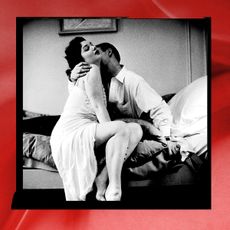 The Best Period Sex Tips, According to Sex Experts
The Best Period Sex Tips, According to Sex ExpertsWho says messy can't be sexy?
By Gabrielle Ulubay Last updated
-
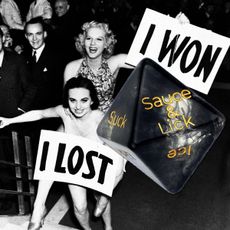 The 20 Best Sex Games for Couples in 2023
The 20 Best Sex Games for Couples in 2023Who said game nights need to be wholesome?
By Gabrielle Ulubay Last updated
-
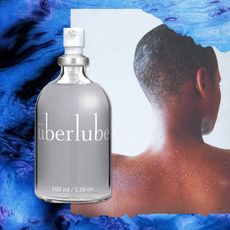 The 14 Best Lubes for Every Need
The 14 Best Lubes for Every NeedGood sex should always go smoothly.
By Gabrielle Ulubay Last updated
-
 COVID Forced My Polyamorous Marriage to Become Monogamous
COVID Forced My Polyamorous Marriage to Become MonogamousFor Melanie LaForce, pandemic-induced social distancing guidelines meant she could no longer see men outside of her marriage. But monogamy didn't just change her relationship with her husband—it changed her relationship with herself.
By Melanie LaForce Published
-
 100 Sex Songs That Won't Make You Cringe
100 Sex Songs That Won't Make You CringeDim the lights and hit play on this sex songs — the perfect playlist of songs to have sex to.
By The Editors Published
-
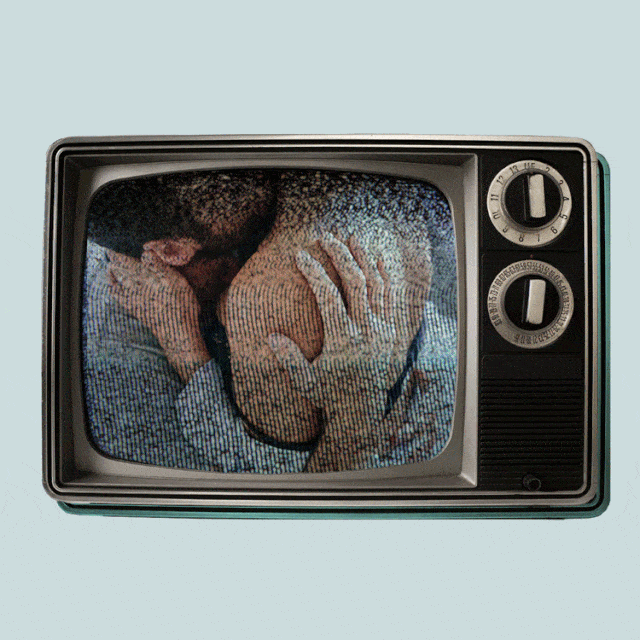 75 Real Sex Scenes in Movies
75 Real Sex Scenes in MoviesThese actors aren't faking anything.
By Mehera Bonner Last updated
-
 33 Unexpected Valentine's Day 2023 Date Ideas
33 Unexpected Valentine's Day 2023 Date IdeasA.k.a. not dinner and roses.
By The Editors Published